-
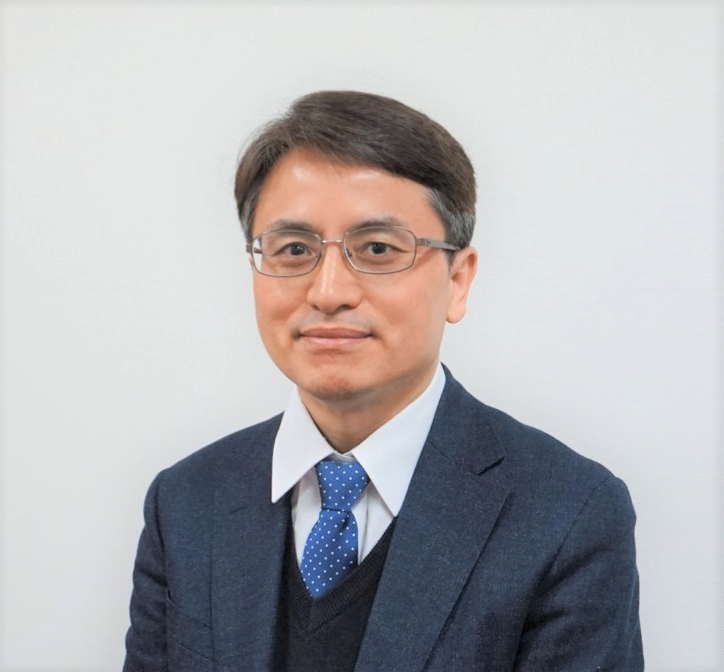 more
more
-
- 031-290-7861
- bioneer@skku.edu
- 생명공학관62동 2층 62251A호실
-
[관심분야]
Skin physiology & Signal transduction, Skin diseases & Immunology, Cancer research (melanoma, prostate cancer, etc.) Development of functional agents for abnormal skin conditions,
-
 more
more
-
- 교수
- 김성규
-
-
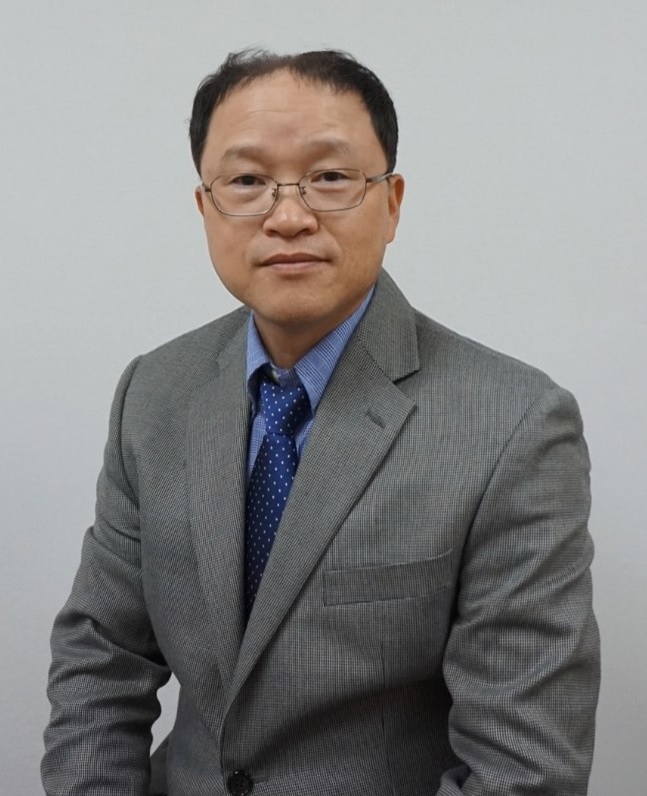 more
more
-
- 031-290-7868
- jaecho@skku.edu
- 생명공학관62동 1층 62107호실
-
[관심분야]
Study of functional role of cell cytoskeleton in inflammatory and tumorgenic responses Understanding of signal transduction pathway in inflammatory signaling Development of anti-inflammatory and anti-cancer drugs Functional role of protein methylation in immune responses
-
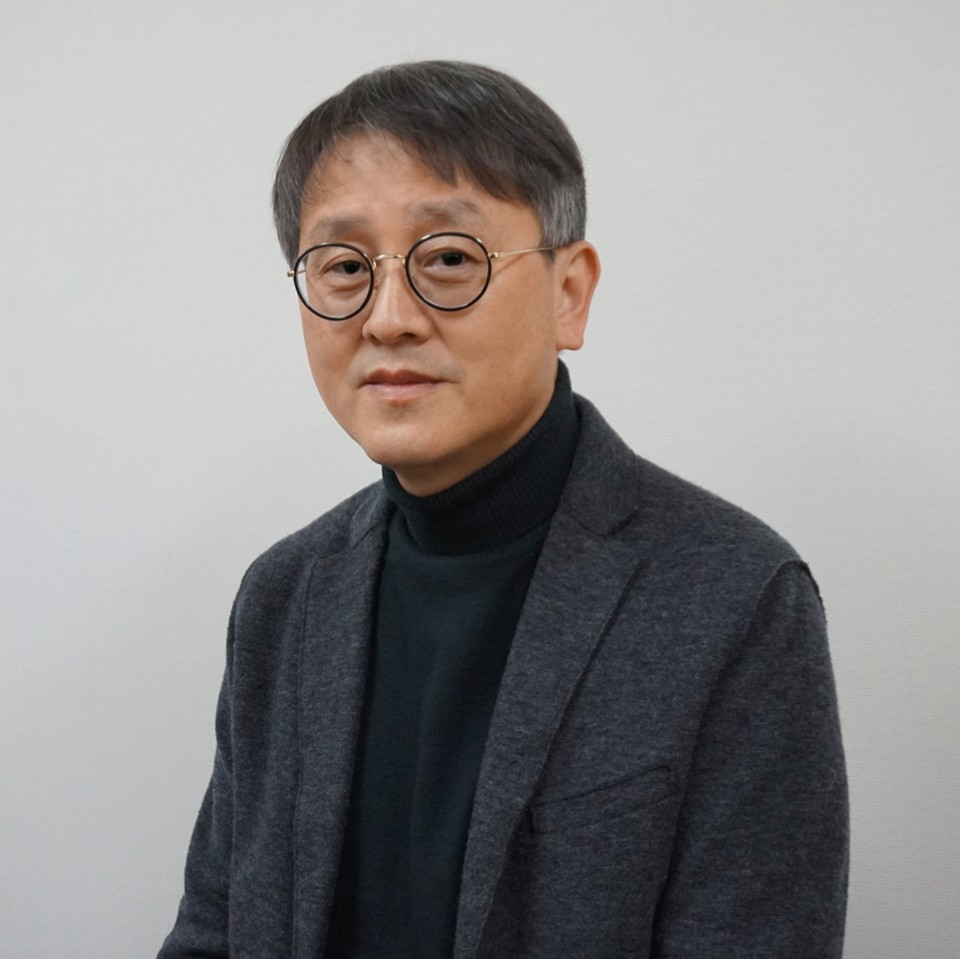 more
more
-
- 031-290-7866
- cell4u@skku.edu
- 기초학문관51동 3층 51363호실
-
[관심분야]
Molecular plant-geminivirus interactions Translational research : Side effect alleviation of cancer patients Antiviral protein development : Nucleic acid hydrolytic catalytic antibody
-
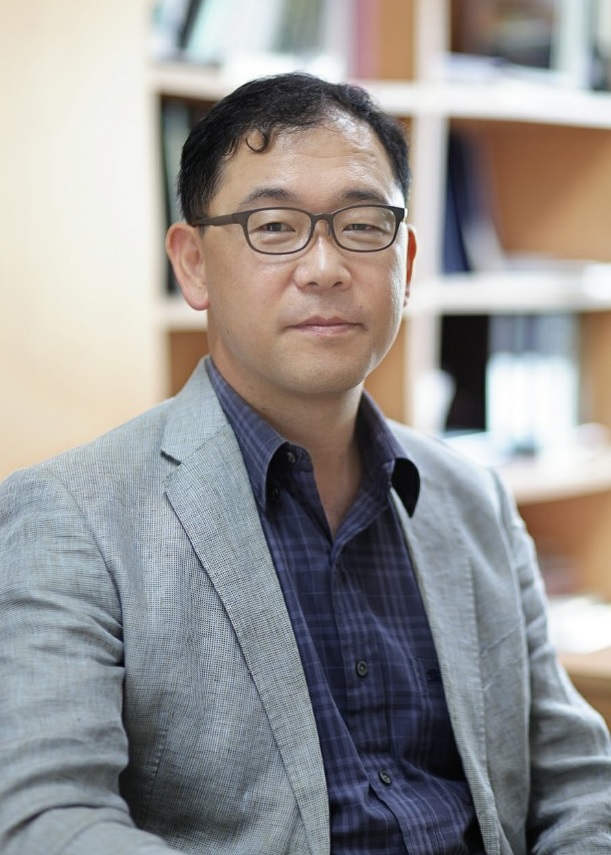 more
more
-
- 031-290-7869
- dhkweon@skku.edu
- 생명공학관62동 2층 62204호실
-
[관심분야]
- 나노디스크를 이용한 항바이러스제 개발. 코로나바이러스 치료제 및 인플루엔자 바이러스 치료제 - 지질나노입자를 이용한 mRNA 전달 기술 및 이를 이용한 바이러스 백신 개발 - 재조합 보눌리눔 독소의 안전한 생산 기술 - 단백질공학 기술 및 단백질 생산 기술 (protein expression control, purification, refolding and protein characterization through spectroscopies)
-
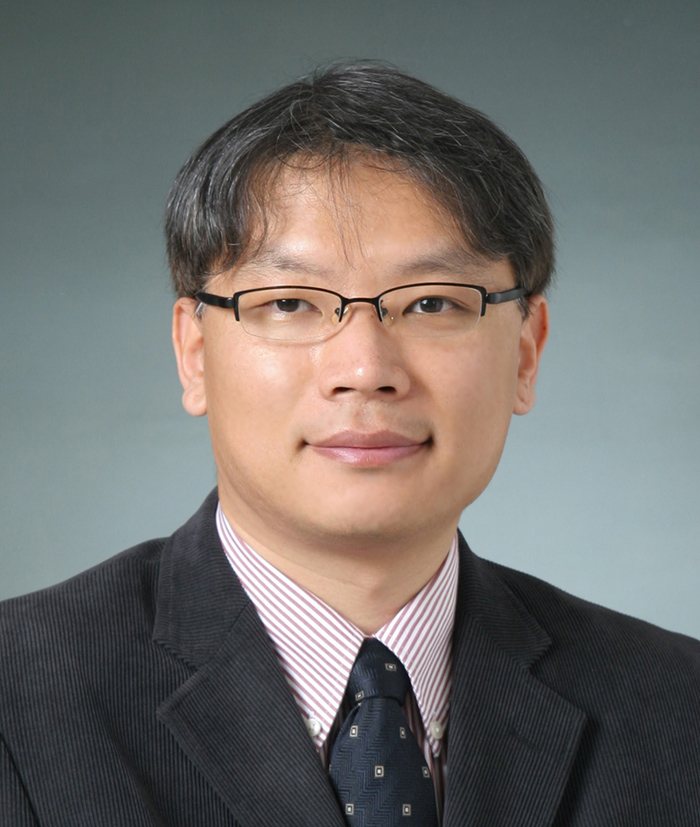 more
more
-
- 031-290-7867
- keejung@skku.edu
- 생명공학관62동 2층 62207호실
-
[관심분야]
뇌의 형성과 줄기세포, 암발생과 제어, 신경계 바이러스, 유도만능줄기세포(iPS)
-
more
-
- 031-290-7865
- ohjs@skku.edu
- 생명공학관62동 1층 62152호실
-
[관심분야]
Regulation of meiotic cell cycle: Cell division is a highly regulated process, driven by the action of cyclin-dependent kinases (Cdks) and their regulatory subunits, cyclins. Inappropriate activation of Cdk/cyclin complexes can drive unregulated cell division resulting in cell death or tumor formation. Cdk/cyclin complexes also play essential roles in a variety of cellular processes such as development and differentiation. Our lab is focused on the action of Cdk/cyclin complexes and all pathways that control or are controlled by Cdk/cyclin complexes during female meiosis. Homologous chromosome segregation and aneuploidy: Reduction of chromosome number during meiosis is essential for producing haploid gametes from diploid parental cells. This reduction is achieved by two successive rounds of chromosome segregation, meiosis I (MI) and meiosis II (MII), after a single round of DNA replication. Although MII resembles mitosis in that sister chromatids separate and segregate to different daughter cells, the pattern of chromosome segregation during MI is unique. During MI, homologous chromosomes pair and then segregate from each other. Defects in this process result in aneuploidy, leading to miscarriages, infertility and genetic disorders such as Down’s syndrome. Therefore, our lab studies the molecular mechanisms that control homologous chromosome segregation during meiosis. Control of oocyte quality: Mammalian oocytes are arrested at the prophase of the first meiosis. After LH surge, the oocytes resume meiosis. During these processes, the oocytes is subjected to various sources of damage-inducing factors, which may lead to a progressive deterioration of oocyte quality. Thus, the control of oocyte quality is critical to reproductive success and survival of a species; however, the precise mechanisms underlying this process remain elusive. Our lab is interesting in identifying the molecular mechanisms that control oocyte quality and eventually leading to identification of diagnostic markers that are predictive of oocyte quality in a clinical setting. Chromatin remodeling during fertilization: Fertilization leads to the transformation of two haploid gametes into a totipotent zygote. During this process, highly condensed chromatins are largely reorganized, preparing to initiate the transcription of embryonic genes which are essential for obtaining the pluripotency. Our lab is exploring the mechanisms of the chromatin remodeling upon fertilization and investigating the role of maternal factors in this process.
-
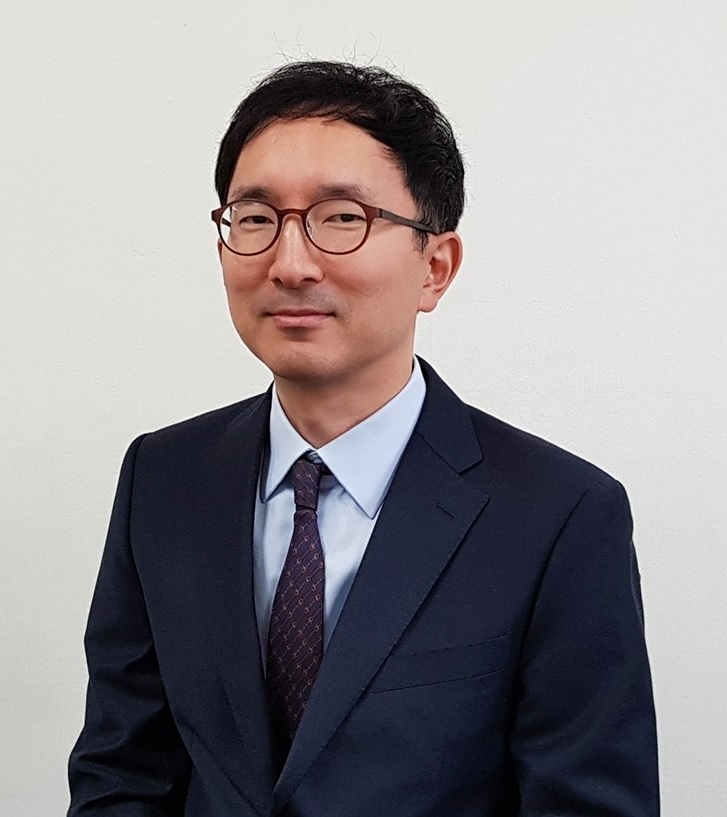 more
more
-
- 031-299-4859
- wjchung@skku.edu
-
[관심분야]
Phage/peptide-based biomaterials Biomimetic materials Bioprinting Therapeutic bionanomaterials
-
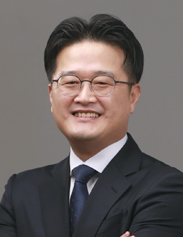 more
more
-
- 031-290-7346
- jinwoongkim@skku.edu
-
[관심분야]
Data-based Microfluidics Bioelectric Sensors Anisotropic Colloids Smart Nanofluids
-
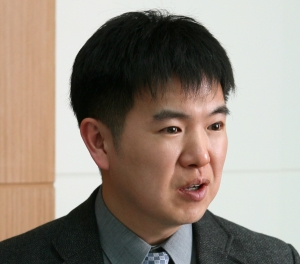 more
more
-
- 031-290-7344
- checws@skku.edu
- 제2공학관25동 4층 25403호실
-
[관심분야]
단백질 리폴딩 디자이너 생물분자를 이용한 생물무기질화 반응 제어, 나노구조체 제작 및 패터닝 바이오센서 및 생물공정 개발
-
more
-
- 031-290-5930
- jimankim@skku.edu
- 화학관 4층 330405호실
-
[관심분야]
Research interests of our group are various aspects of science and technology, ranging from fundamental research to possible industrial applications. Our researches are focused on design and synthesis of noble nanoporous materials, especially mesoporous materials, and nanostructured materials such as nanoparticles and nanowires. The nanoporous materials have attracted much attention in the fields of nano-chemistry, nanotechnology, and supramolecular chemistry due to their ordered nano-porosity (1~30nm). Generally, the nanoporous materials are synthesized by self-assembly and polymerization between organic pore generator and inorganic framework precursors. We have been developing new synthetic strategies for the materials in order to give new structures and functionalities. Applications of the nanoporous materials as the catalytic, electronic and energy materials are also our main interests.
-
 more
more
-
- 교수 식품화학,식품분석학, 유지식품화학
- 이재환
-
- 031-290-7809
- s3hun@skku.edu
-
[관심분야]
지방산화(광산화, Deep-fat frying) 메커니즘 구명 및 새로운 산화방지제 개발 지방산화 측정법 개발 (DPPH법, DSC, NMR 활용) 산화방지제의 작용 기전 구명 (수분, polarity, amphiphilic compounds와 지방산화의 관계) 트랜스지방 분석법 개발 및 이해 Oleogel 개발을 통한 새로운 유지식품소재 개발 Non-fermentation: Riboflavin photosensitization 등 화학반응을 활용한 새로운 phytochemical 형성 및 기능성 구명 Fermentation : 발효 과정 중 발생하는 phytochemical 동정 photosensitization에 의한 산화방지능 기능성 변화
-
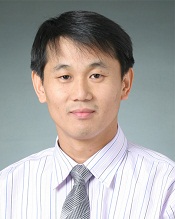 more
more
-
- 교수 식품생화학, 식품면역학
- 박계원
-
- 031-290-7804
- kwpark@skku.edu
- 생명공학관62동 2층 62210호실
-
[관심분야]
지방세포의 에너지 대사 촉진을 통한 비만 치료 기술 연구 천연물의 비만 및 대사질환에 대한 유효성 평가 및 기전연구 분자적 기전 연구를 통한 신규 표적 발굴 연구
-
 more
more
-
- 031-299-4162
- yhkim94@skku.edu
-
[관심분야]
Part. 1 Protein-based materials: Non-biodegradable, conductive and bio-compatible protein-based gel / Extracellular matrix-mimetic protein-based environment / Controlling gel properties for biosensor and drug delivery, Part. 2 Supramolecular self-assembly: Coiled-coil based self-assemble supramolecule modularization / Protein-directed self-assembly of a fullerene crystal, Part. 3 Cell behavior control using protein: Multi-functional Mussel Adhesive Protein (MAP) library / Regulating cell activity and morphology using functional proteins
-
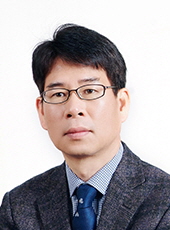 more
more
-
- 031-290-7789
- hkims@skku.edu
- 약학관 5층 530543호실
-
[관심분야]
- Pyruvate kinase M2 (PKM2)표적 기반 암세포 대사 조절 표적분자 발굴 및 기전연구: 암세포 대사과정에서 생성되는 유기산에 의한 저항성 획득 기전 및 전이에 미치는 영향를 통한 표적치료제 개발 - 오믹스 기반 동물모델을 이용한 표적분자 독성 예측 바이오마커 발굴 Histone deacetylase (HDAC) inhibitor의 항암활성 및 항암제 저항성 극복을 위한 기전연구 - 당뇨성 대사질환 및 합병증 유발 조기진단 키트 개발 및 치료제 연구
-
 more
more
-
- 031-290-7783
- jhjeong@skku.edu
- 약학관 6층 530627호실
-
[관심분야]
Polymer-based drug delivery systems for biological molecules Stem cell engineering and therapy Solubilization of poorly water soluble drugs
-
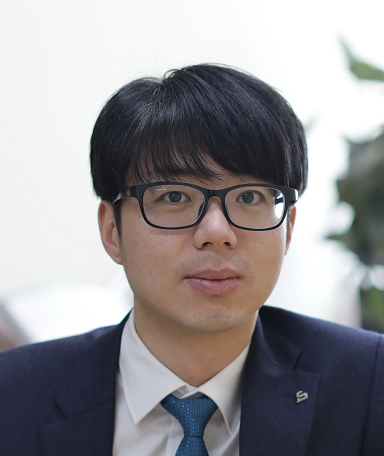 more
more
-
- 031-290-7700
- khkim83@skku.edu
- 약학관 7층 530728호실
-
[관심분야]
Chemical biology of natural products Isolation and structural elucidation of novel natural products from termite-associated microbes Structural elucidation and discovery biological activities of natural compounds from Korean wild mushroom and fungi
 발전기금
발전기금



